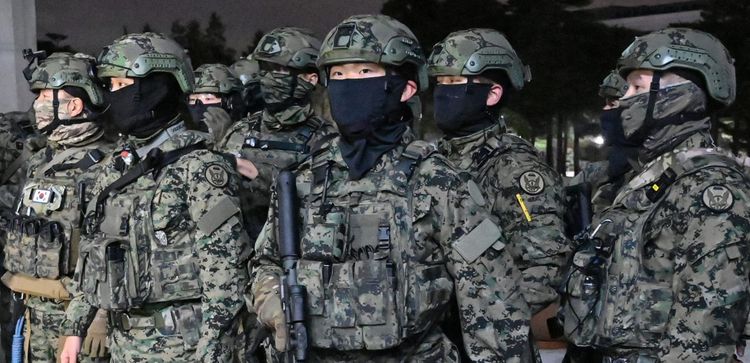South Korea: President must give assurance martial law will not be ...

4 December 2024
Responding to the declaration of emergency law by South Korea’s president Yoon Suk Yeol, which has since been reversed, Amnesty International’s East Asia Researcher Boram Jang said:
“The state of emergency declared in South Korea this evening must not be used to justify a crackdown on people’s human rights.
“President Yoon must fully explain the reasons for declaring martial law and ensure that any measure restricting human rights is exceptional, temporary and limited to what is strictly required by the demands of the situation – with all of this being subject to judicial review.
“If the declaration of martial law means the transfer of administrative and judicial powers to the military, this threatens to undo decades of hard-won progress and could have devastating effects on human rights. Without sufficient justification, this would be a clear violation of international human rights law and standards.
“Even if a public emergency is declared, the rule of law must still prevail. Martial law cannot and must not be used as a tool to suppress dissent or curtail fundamental freedoms.”
Amnesty International’s East Asia Researcher Boram Jang“Even if a public emergency is declared, the rule of law must still prevail. Martial law cannot and must not be used as a tool to suppress dissent or curtail fundamental freedoms. President Yoon’s actions must adhere to international standards given the severe threat to the rule of law and the protection of human rights.”
BackgroundSouth Korean President Yoon Suk Yeol on Tuesday declared martial law in an unannounced late night address broadcast live on TV.
He claimed he would eradicate “shameless pro-North Korean anti-state forces”. Media reports cited the military as saying activities by parliament and political parties would be banned, and that media and publishers would be under the control of the martial law command. All assemblies and demonstrations are also reportedly banned.
Under South Korean law, martial law can only be imposed in situations of extraordinary threats to the survival of the nation, such as war or armed rebellion. It is not clear that the justification provided by President Yoon – a response to alleged subversive activities and impeachment proceedings – meets the strict legal and constitutional thresholds required under Article 2 of the Martial Law Act and Article 77 of the Constitution. Under international human rights law, such measures must be exceptional, strictly necessary, proportionate, and temporary.
Martial law may only be declared due to a state of emergency which threatens the life of the nation, and must comply with international safeguards that protect human rights.
International human rights law and standards permit only limited scope for additional restrictions of the exercise of human rights under martial law beyond what is permitted in normal times.









































